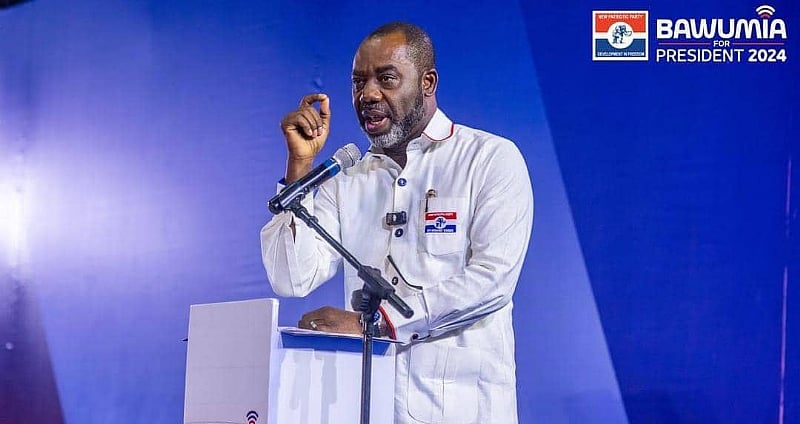Dr. Matthew Opoku Prempeh, known as NAPO and the current running mate of the New Patriotic Party (NPP), has made claims regarding the origins of Comprehensive Sexual Education (CSE) in Ghana’s basic school curriculum. During an appearance on Peace FM’s Kokrokoo show on October 16, 2024, he alleged that the previous administration led by President John Mahama’s National Democratic Congress (NDC) was the first to introduce CSE into the school system. NAPO stated that as early as 2011, the NDC accepted funding for the development of a CSE manual, with intentions to implement the program in schools by 2016, a period coinciding with their time in power. He pointed out that this initiative received backing from the United Nations Population Fund (UNFPA) and involved collaboration between the Ministries of Health and Education.
The discussion surrounding CSE has gained significant attention and controversy, especially following NAPO’s comments at the Bantama Big Walk in the Ashanti Region, organized by the NPP. During the event, he alleged that the previous government had introduced sensitive topics, including those related to LGBTQ+ issues, into the educational curriculum before exiting office. This assertion has set off a broader debate about the role of sexual education in schools and whether it includes discussions about sexual orientation. His remarks have further ignited concerns among the public regarding the appropriateness of CSE and its implications for societal norms and values.
In his efforts to substantiate his claims, NAPO mentioned that the amended Basic School Curriculum, which was signed and published under the authority of the then Director General of the Ghana Education Service, acknowledged the incorporation of CSE following receipt of funding. He expressed confidence in possessing documentation that could support his assertions regarding the introduction of CSE and the various actions taken by the previous administration in relation to the curriculum. This endeavor to provide evidence illustrates a key tactic in political discourse, particularly in contentious debates surrounding education policy and curriculum development.
Furthermore, NAPO argued that after finalizing the curriculum, the NDC lost power to the NPP, which he believes led to the abandonment or alteration of the CSE program they had initiated. He suggested that some members of the NDC even sought to promote these education efforts in northern communities before leaving office, amplifying the narrative that the NDC was pushing for the inclusion of these topics in Ghana’s educational framework. This claim not only seeks to portray the NDC as an architect of controversial subjects in education but also serves to position the NPP as defenders of traditional values in the face of what they perceive as changing societal norms.
The dialogue around CSE in Ghana’s education system reflects larger societal debates about sexuality, morality, and children’s rights to comprehensive education. Critics of CSE argue that its inclusion could lead to the promotion of ideas counter to Ghanaian cultural and moral values, particularly concerning discussions around sexual orientation. On the other hand, advocates assert that CSE is essential for equipping young people with the knowledge to navigate their bodies and relationships responsibly, and to prevent issues such as sexual abuse and unplanned pregnancies. This dichotomy of perspectives illustrates the complexities inherent in educational reforms, where ideological beliefs intersect with policy decisions.
The interplay of accusations, evidence, and public opinion surrounding CSE encapsulates a critical moment in Ghana’s political landscape, particularly as it pertains to education. NAPO’s statements, backed by claims of documentation and official recognition of the curriculum changes, continue to fuel the controversy over CSE, intertwining political rhetoric with societal values. As the country progresses, the debates on education policies and moral frameworks will likely persist, calling for informed discussions that consider various viewpoints and the implications of implementing comprehensive sexual education in Ghana.


